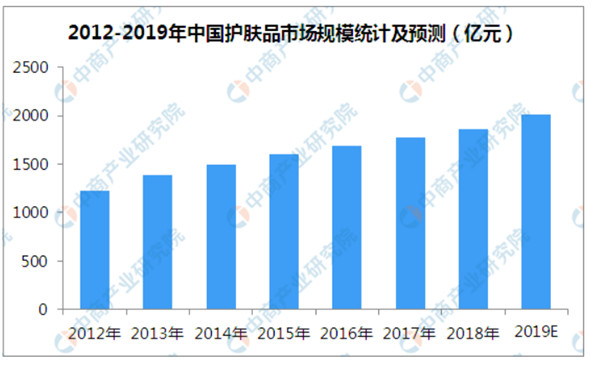According to the latest data from the National Bureau of Statistics, from January to April 2019, the national online retail sales reached 3,043.9 billion yuan, a year-on-year increase of 17.8%. Among them, the online retail sales of physical goods was 2,393.3 billion yuan, an increase of 22.2%, accounting for 18.6% of the total retail sales of social consumer goods
In recent years, the online retail industry has flourished. From household appliances, mobile digital, home improvement, clothing and apparel to fresh food, office supplies, etc., the category coverage of online retail has been continuously extended, the category has been continuously enriched, and emerging products have become popular. It has greatly promoted the development of the entire online retail industry.
At the same time, China's online retail has entered a "new consumption era" of branding, quality, green and intelligent. The continuous growth of the domestic consumption economy drives the continuous development of high-quality online retail, and the rapid rise of new industries, new formats and new models. Online retail not only has a strong driving effect on China's economy, but also meets the multi-level and diversified needs of consumer groups, and further unleashes the consumption potential of residents.
From the perspective of the retail sales of the cosmetics industry: in April 2019, the national cosmetics retail sales were 21 billion yuan, a year-on-year increase of 6.7%, and the growth rate slowed down; from January to April 2019, the national cosmetics retail sales were 96.2 billion yuan, a year-on-year increase of 96.2 billion yuan. Compared with the increase of 10.0%.
Judging from the online retail situation of the skin care suit industry: the TOP10 brands of skin care suit online retail in April 2019 are: Hou, SK-II, L'Oreal, Pechoin, Aihuijia, BAUO, Olay, Natural Hall, Zhichun, HKH. Among them, the market share of post-brand skin care sets continued to occupy the top position, accounting for 5.1%. Second, the SK-II market accounted for 3.9%, ranking second.
From the perspective of cosmetics category, my country's cosmetics market shows distinct regional characteristics. In my country, the market size of skin care products accounts for 51.62% of the total daily chemical products, which is about twice the world average. However, Chinese consumers' demand for color cosmetics and perfume products is significantly lower than the world average. The global color cosmetics category accounts for 14%, and my country's only 9.5%. The global perfume category accounts for about 10.62%, while my country's only 1.70%. . Data from the China Business Industry Research Institute predicts that by the end of 2019, the overall market size of my country's skin care products industry is expected to exceed 200 billion yuan.
Industry Development Trend

The arrival of consumption upgrades has made consumers pay more attention to product quality, and they are more willing to pay for cost-effective products. At present, international brands firmly occupy the high-end market, and local Chinese brands want to gain a strong market and need high cost performance to gain consumer recognition. After entering 2016, the term "new domestic products" has become the direction pursued by Chinese brands.
Not only China's manufacturing industry, but also in China's cosmetics industry, domestic cosmetics brands have also set off a new domestic product movement. In the future, local Chinese brands may seize the market with the help of high-end quality and mid-range prices.
In the next 5 to 10 years, local brands will gradually rise, and local brands in the domestic cosmetics market are expected to gradually replace foreign brands. There are a lot of development opportunities for local brands such as Herborist, Hanshu, Pechoin, and Proya.
Post time: Aug-23-2022





